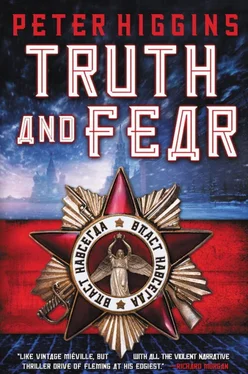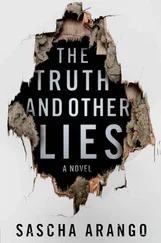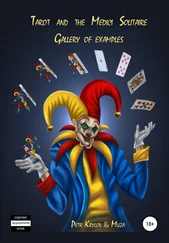When he was fully warmed through he rolled lazily out of his nest, swung himself up to the ceiling and skittered across it to the skylight, slipped through and climbed onto the lead of the roof. Naked, he squatted under the sky, bathing in starlight. There was something new on the air. The night was wired with it. The residue of burned city and upturned earth, the traces of two thousand deaths. The touch of war.
Bez Nichevoi, light of heart, unstrung the bundle of clothes he’d left hidden in the lea of a chimney stack, dressed, and set off across the rooftops to the Lodka, to read the file of papers Iliodor had left for him on Maroussia Shaumian.
Josef Kantor, king terrorist, buttoned the tunic of his Colonel-General’s uniform with fat, stiff fingers. Josef Kantor, agitator, pamphleteer, bomb-maker, assassin and robber of banks, his fingers swollen and hardened by decades of labour with shovel and pick, bare-handed scrabbling at rock, freezing cells, interrogation rooms, did up his uniform buttons one by one. Josef Kantor, author of the Birzel Declaration, survivor of Vig, leader of the Fighting Organisation of Lezarye, forced awkward buttons of gleaming brass through virgin buttonholes with ruined fingernails.
The uniform was green, thick serge and factory-new. More brass at shoulder and collar. Hammers and stars. Boots shone like coal.
New times require new forms of thought.
The telephone on the desk rang. He picked it up.
‘General Rizhin? They are ready for you. The Operations Room—’
‘Let them wait.’
He opened the drawer and took out his revolver. A Ghovt-Alenka DK9. An unremarkable service firearm. It felt comfortable in his hand, a familiar, useful thing, like a spade to a peasant.
I’ll dig with it.
He checked the cylinder and slipped it into his holster. Left the flap unbuttoned. A handful of loose shells in his pocket. It was time.
There is no past. There is only the future.
He walked out of the room into the corridor where Rizhin’s future began.
It cost him nothing to let Josef Kantor die.
They were waiting for General Rizhin in a ground-floor conference room on the far side of the Armoury parade ground. Operation Ouspensky Bulwark . Maps and charts and telephones. The six officers at the table stood when he entered. The fat one stepped forward and saluted. The flesh of his neck bulged over his collar. Small, worried eyes squinted at Rizhin with wary hostility. The distrust of the career officer for the man he’d never heard of till that very morning. The political man. Chazia’s man. Chazia’s ears.
‘I am Strughkov,’ he said. ‘Major-General Strughkov, Commander, City Defence. Welcome, General. We have prepared a presentation. The current situation, and our plans. We have proposals to make for—’
‘The situation, Strughkov, is shit. Your plans are also shit.’
Strughkov flushed.
‘General Rizhin—’
‘Where are the divisions?’ said Rizhin. ‘Where are the guns? The Bukharsk Line is broken. When the enemy comes, will you blow up their armies with presentations and sink their ships with plans?’
‘Our orders,’ said Strughkov, ‘are to hold the city for forty-eight hours. A week at most. We are to delay the enemy for long enough to allow the orderly evacuation of government. The Vlast is moving east. Plant and stocks from the factories are to be relocated. We have made our dispositions. Khalturin’s Corps of Horse stands ready in the Ouspensky Marsh. Five infantry regiments at Satlivosk. We have the 23rd Engineers. We have stockpiled arms for the militia. Raised twenty thousand volunteers—’
‘Untrained conscripts,’ said Rizhin. ‘Old men and boys. Policemen with antiquated rifles.’
‘We make the best of what we have.’
‘Where are the fortifications? The outer lines of defence? Artillery? Aircraft? More mudjhiks guard the Novozhd’s bones than guard the city. Where are the gunships in the Reaches? Why do the bridges at Nordslavl still stand?’
‘We will hold the line between Kropotlovsk and Yatlavograd for forty-eight hours. That will be enough. Then we will withdraw eastward, fighting as we go. We are to destroy everything we cannot take with us. Not a sack of grain, not a horse and cart, not a gallon of engine oil is to be left. We are to join the Third Army at Strom.’
‘Mirgorod,’ said Rizhin, ‘is the capital city of the Vlast. The Founder’s city, built at the site of the first angel fall. The heart of the Dominions for four hundred years. And you, General Strughkov, are proposing to abandon it without a fight.’
Rizhin watched with curiosity the working of Strughkov’s fat, tired face. The reddening anger and, in his eyes like tears held back, the strange beginning of grief. The war been stalemated for so long, the fronts locked in entrenched positions far from Mirgorod to the south and south-east, that even to the men who led the armies of the Vlast it had come to seem permanent. Stable. Familiar. Inevitable. Like the authority of generals. Like the Vlast itself. A few miles lost and gained here and there, year by year, decade by decade, paid for with statistical quantities of death, changing nothing. And yet, behind it all, the whisper unheard. The myth dispersing. The possibility of failure and total collapse.
In the room a fundamental psychological turn had been taken. Rizhin felt it. The men withdrawing. Strughkov standing alone.
‘The Novozhd…’ said Strughkov. ‘He would not… I asked, of course. I pressed the case for strengthening the defences of the city a hundred times. He refused to allow it. He would not admit the possibility of the enemy getting this far. He would not countenance the alarm and dismay that defensive preparations might cause among the population. He would not listen to me. And then, when he was killed and Commissioner Dukhonin was appointed, I hoped for a better response, but it was no different. Nobody would listen. They would not act. The orders to defend the city never came.’
‘And now Dukhonin is dead and I am here. And you, General Strughkov, were charged with the defence of Mirgorod. What other orders did you need?’
‘I am a soldier,’ Strughkov shouted. ‘I know my duty. I don’t need a man like you—’
‘What kind of man am I?’ said Rizhin. ‘Do you think?’
Strughkov glared at him, his face purple, his eyes full of hurt. A man who had done his best. He took a deep breath and puffed out his chest.
‘Why don’t you tell us, General Rizhin?’ he said. ‘None of us knows who the fuck you are.’
‘Speculate,’ said Rizhin.
‘A uniform,’ said Strughkov viciously, ‘doesn’t make you a soldier.’
Rizhin smiled thinly and looked around the room. One by one, he stared every officer present in the eye. Strughkov was still glaring at him–angry, but with the beginning of a gleam of triumph. None of the others met his gaze.
‘There is a foul stink in this room,’ said Rizhin quietly. ‘I smell it, gentlemen. It is ripe and rank. I smell deviation. I smell revisionism. I smell conspiracy. I smell you, Strughkov. You are an enemy of the Vlast. A class enemy of all citizens. A traitor and a spy. Your treacherous failure to defend the city is an act of sabotage.’
Strughkov roared with anger and indignation.
‘ You say this to me !’ he screamed. ‘ You … how dare you! You know nothing about—’
Bored, Rizhin drew his Ghovt-Alenka and shot him in the groin.
Strughkov collapsed, clutching the spurting wreckage between his legs, squealing in horror like a hurt, indignant child. Moving his legs slowly like a swimmer in a spreading pool of blood. Rizhin had to shoot him twice more to shut him up.
Читать дальше


![Кэмерон Доки - Правда и ее последствия[Truth and Consequences]](/books/79610/kemeron-doki-pravda-i-ee-posledstviya-truth-and-con-thumb.webp)









